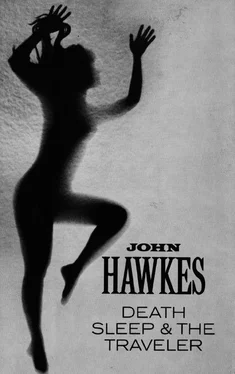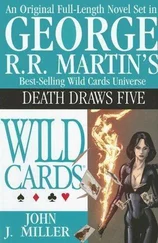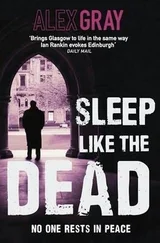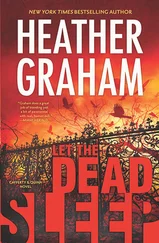It is raining, my white shirt smells as if it has been sprinkled with the juice of clams, my feet are bare. And I am agitated over the problem of Ursula’s welfare. But Peter removes a thick black professional fountain pen from the pocket of his long white coat and on a spongy paper napkin writes what I presume are instructions to those invisible attendants who will either set Ursula free or do her harm.
I accept the instructions, I express my thanks, I see that Peter is returning the fat pen to the breast pocket of his long white coat. He appears quite unconcerned about Ursula or my own atypical need for haste. The voices of the young men and women are wet with admiration as if Peter is their celebrity as well as doctor. Instructions in hand I hurry again into the rain which has become a combination of white mist and dripping leaves.
The light in Ursula’s cabin smells of tallow. The bulb is naked and yet casts an orange light over all the damp interior of that small screened-in white cabin into which Ursula is settling, making herself comfortable, as if the cabin were facing an empty beach instead of standing in the center of the grounds of Peter’s hospital. Inside the cabin there is no one but Ursula, who is spreading a sheet, removing the contents of her valise, only unwary Ursula and no one to whom I might show Peter’s lengthy handwritten instructions to send Ursula back to her home, her garden, her magazines, her husband. But even so, when I glance at the instructions I see that the paper napkin has absorbed the rain and that the ink has become hopelessly blurred.
“Don’t you see where you are?” I say. “Don’t you understand?”
But she only smiles and smoothes the sheet, while I in anxiety and frustration take full note of the fact that the cabin is half garage, half cabin, so that the ambulance may enter the cabin itself and deposit the unruly patient directly into the waiting bed. And I also take full note of the thickly padded straps attached to the bed, the enamel pan beneath a cheap table, the smell of some terrible drug that lingers on the damp air.
The orange light, the smell of a burning candle, the smell of the drug, the padding on the bedstraps as thick as my arm, it is a stage setting with which I am familiar and unfamiliar both, and in which I am more afraid than ever.
“We must go,” I whisper, “we must leave at once.”
But Ursula only smiles, leaning over the bed, and draws up the sleeve of her simple yellow dress that has fallen away to expose some of the fullness of her perfect shoulder, and speaks. As long as Peter is there, she tells me, we have nothing to fear.
When I told this dream to Ursula she remarked that the drug in my dream was in all likelihood paraldehyde, which she remembered hearing about somewhere in the past. Then she walked across the room and stood looking down at me where I sat in the leather chair and said that never, never, would I be able to wrap her in the rubber sheet, as she expressed it, of my destructive unconscious and, further, that I should take this dream as a warning, not about the state of her psychic life but mine.
At that moment it occurred to me once again that Ursula was quite capable of preserving herself psychologically at my expense. Then I began to search myself for the reason she had used the metaphor of the rubber sheet.

“Did you do it?” she asked, cupping the roses against her breasts. “Did you, Allert? Did you? I want to know.”

The smell of the raw sea beneath the pier, between the ship and pier, and the smell of wood, of tar, of fresh paint, of petrol, of salt, of engine oil lapping the insides of vast steel drums, and the smell of perfume and distant schools of dead fish and of thick new lengths of hawser across the crowded pier like fresh nets for the unwary, in the midst of it all I felt as if I were wearing the rubber suit of the skin diver beneath my clothes. In the grip of the steam whistle my body was drowning in its own breath. Inside the rubber skin I was a person generating his own unwanted lubricant of poisoned grease. Even as Ursula propelled me toward the gangplank I felt myself sinking. For a moment I longed for a quick slice of the surgeon’s knife as if I were my own ulcer and only the cold punctuating knife of the surgeon could bring relief.
“It’s so exciting, Allert,” she said on tiptoe with her lips to my ear, “don’t you agree?”

“Allert,” she said, “I wish you’d stop poeticizing my crotch. It’s only anatomy, after all. There’s nothing mysterious about it. It could hardly be more familiar, to you at least.”
“It is quite true,” I murmured, feeling for the ash tray in the darkness, “that I am intimately aware of your anatomy. But you might as well try to persuade me that the conch shell, for instance, is not mysterious. You’ll never convince me, Ursula. Never. The conch shell and its human anatomical analogue are mysteries. The imagination cannot be denied.”

Hollander, beast of the dream, head of the household, suddenly I awoke and pushed myself upright among the pillows. The air was of neutral temperature and yet the cold night was inside the house, it seemed, so that the carpeting smelled of dead leaves while the darkness was fusing itself with the night stars. I was unconscious of sexual inclinations, I wanted only to see the snow outside. So I swung clear of the softness and heat of my enormous bed, found my robe and stood by one of the windows tying my robe. Below me the snow was a thin unviolated white crust spread as with a trowel between the house and the black edge of the naked trees in the distance. In the starlight and at the edge of the house the frosty rear end of Peter’s car was barely visible. I took a deep breath, another, and through the years, the darkness, the coldness of this drifting night I caught for a moment the fleeting telltale scent of the flowers that once filled my childhood.
I pressed my cheek to the cold glass and decided to forgive Ursula for saying in Peter’s presence that I had the face of a fetus.
Her door was closed. It was constructed of solid oak and closed with all the finality of unlighted houses, midnight rituals, silent rooms. But Ursula’s bedroom door was unlocked, as I discovered as soon as my warm hand closed on the cold sphere of solid brass that was the knob. I myself could not hear the door knob turning, I myself could not hear the sound of my breath or of my wrinkling robe or of my bare feet on Ursula’s white tufted rug. And yet Ursula must have heard my slightest movement and the tones of my very determination to make no noise, because as soon as I entered that room and closed the door behind me and approached her bed, which was thoroughly visible thanks to the cold stars and the crust of reflecting snow, she spoke to me, clearly but softly so as not to disturb Peter who was asleep at her side.
“Allert,” she said in the silver light, “what do you want?”
Her voice was low, clear, soft, feline, neither charitable nor uncharitable, neither kind nor cruel. In the midst of the scented sheets, the pillows in their satin skins, the peach-colored comforter filled with the fuzz of ducklings, there she lay with her head turned in my direction and Peter’s jaw thrust against her left shoulder like the point of a hook. Ursula’s eyes were fixed on mine. Peter was snoring.
“Go away, Allert,” she said then, quietly, simply. “Peter needs his sleep.”
Читать дальше













